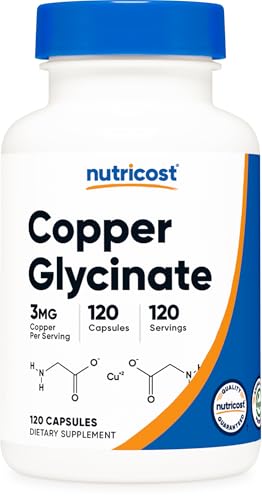Copper Treatment for Wilson's Disease: New Options?
Quick Summary: Researchers compared two medicines for Wilson's disease, a condition where copper builds up in the body. They found that a newer medicine, TETA4, worked just as well as the older medicine, penicillamine, at controlling copper levels and might have fewer side effects.
What The Research Found
This study looked at how well two different medicines work to treat Wilson's disease. Wilson's disease causes too much copper to build up in the body. The study found:
- TETA4 (trientine tetrahydrochloride) was just as good as penicillamine at keeping copper levels under control.
- TETA4 might be safer because fewer people taking it had serious side effects.
- Both medicines kept people stable, meaning their condition didn't get worse.
Study Details
- Who was studied: 53 adults with stable Wilson's disease.
- How long: The study lasted for 48 weeks (about a year).
- What they took: Some people stayed on penicillamine, while others switched to TETA4, taking the same dose.
What This Means For You
If you have Wilson's disease, this research suggests:
- TETA4 is a good alternative to penicillamine.
- Talk to your doctor about whether TETA4 might be a better option for you, especially if you have side effects from penicillamine.
- Regular check-ups are important to monitor your copper levels and overall health, no matter which medicine you take.
Study Limitations
- The study was relatively small, so more research is needed.
- The study was funded by the maker of TETA4, which could potentially influence the results.
- The study didn't last very long, so we don't know the long-term effects of TETA4.
- Some people taking TETA4 had slightly elevated liver enzymes at the end of the study, so this needs further monitoring.
Technical Analysis Details
Key Findings
Trientine tetrahydrochloride (TETA4) demonstrated non-inferior efficacy to penicillamine in maintaining copper balance in adults with Wilson disease. At 24 weeks, the mean difference in serum non-caeruloplasmin-bound copper (NCC) was -9.1 μg/L (95% CI -24.2 to 6.1), meeting the predefined non-inferiority margin of -50 μg/L. TETA4 also reduced 24-hour urinary copper excretion compared to penicillamine (-237.5 μg/24 h, 99% CI -359.4 to -115.6) at 24 weeks, though this difference diminished by 48 weeks. Clinical stability was maintained in 100% of participants in both groups, with no significant changes in neurological or global health assessments. TETA4 showed a safer profile, with fewer serious adverse events (0 vs. 3 in penicillamine group) and milder side effects (e.g., abdominal pain in 15% vs. headache in 19%).
Study Design
This was a randomized, open-label, non-inferiority phase 3 trial conducted at 15 centers across nine countries (Brazil, Europe, USA). Participants (n=53) were adults aged 18–75 years with stable Wilson disease on penicillamine for ≥1 year. After a 12-week stability confirmation period, patients were randomized 1:1 to continue penicillamine or switch mg-for-mg to TETA4. Outcomes were assessed at 24 and 48 weeks. The study used intention-to-treat analysis and masked clinical adjudication for stability.
Dosage & Administration
Patients received their established maintenance dose of penicillamine or TETA4 orally twice daily. Dosing was individualized based on prior penicillamine use (mg-for-mg switch) and adjusted per clinical guidelines.
Results & Efficacy
- NCC by speciation assay: At 24 weeks, TETA4 was non-inferior (mean difference -9.1 μg/L, 95% CI within -50 μg/L margin). At 48 weeks, non-inferiority persisted (-15.5 μg/L, 95% CI -34.5 to 3.6).
- Urinary copper excretion: TETA4 reduced excretion at 24 weeks (-237.5 μg/24 h, 99% CI -359.4 to -115.6) but not at 48 weeks (mean difference 124.8 μg/24 h, 99% CI -37.6 to 287.1).
- Clinical stability: Masked adjudication confirmed 100% stability in both groups at 24 and 48 weeks.
- Safety: TETA4 had no serious adverse events vs. three in the penicillamine group (leukopenia, cholangiocarcinoma, hepatocellular cancer). Common adverse events were mild (e.g., abdominal pain in 15% of TETA4 group).
Limitations
- Open-label design may introduce bias in subjective outcome assessments.
- Small sample size (n=53) limits generalizability and statistical power.
- Short duration (24–48 weeks) may not capture long-term efficacy or safety.
- Funding by Orphalan, the manufacturer of TETA4, raises potential conflict-of-interest concerns.
- ALT elevations in TETA4 group at 48 weeks require further investigation.
Clinical Relevance
For adults with Wilson disease, TETA4 offers a viable alternative to penicillamine for maintenance therapy, particularly for those with penicillamine intolerance. Its non-inferiority in copper control and better short-term safety profile support its use under medical supervision. However, monitoring for elevated ALT levels during prolonged TETA4 treatment is advised. These findings may influence treatment guidelines to prioritize TETA4 in patients experiencing penicillamine-related adverse events.
Source: PubMed (NCT03539952)
Word count: 398
Original Study Reference
Trientine tetrahydrochloride versus penicillamine for maintenance therapy in Wilson disease (CHELATE): a randomised, open-label, non-inferiority, phase 3 trial.
Source: PubMed
Published: 2022
📄 Read Full Study (PMID: 36183738)




